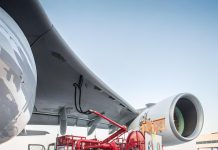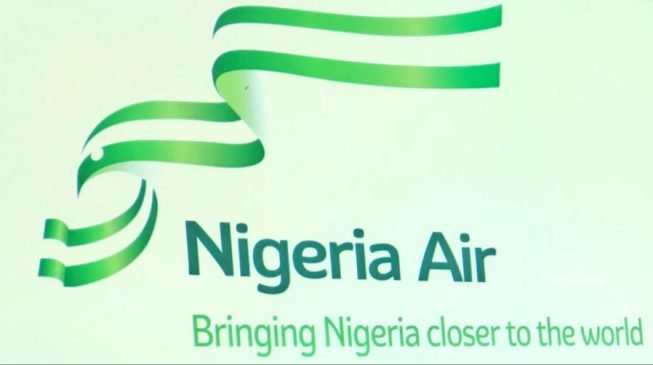Opinion piece by Chike Okolocha
The recent ruling by Justice Ambrose Lewis-Alagoa of a Lagos High Court has finally put Nigeria Air in perfect perspective. The learned judge granted that the agreement between the federal government and Ethiopian Airlines which ceded a majority shareholding in the suspended Nigeria Air to Ethiopian Airlines was exclusionary. He duly declared it null and void and of no effect. Although the judge granted most of the reliefs sought by the plaintiffs, it is instructive that he held that they did not suffer any injury from the nullified transaction and duly dismissed the N2 billion damages they claimed as recompense.
So, who are these traducers? They are the Registered Trustees of the Airline Operators of Nigeria (AON), Azman Air Services, Air Peace, Max Air, United Nigeria Airline and Topbrass Aviation. These are the self-same entities that have held the Nigerian civil aviation sector by the jugular, keeping it from rising above utter mediocrity. In spite of all their grandstanding, air travel has recessed into infantilism since the ill-advised liquidation of Nigeria Airways, an action that marked the surrender of the Nigerian civil aviation airspace to local operators. No less a body as IATA has rebuked them for poor services and sustainability issues and, accordingly, supported the popular call for the establishment a Full-Service Carrier (FSC) in the country.
Whereas it is incontrovertible that the former Aviation Minister, Hadi Sirika, was woeful in his birthing of Nigeria Air, he confessed that no Nigerian airline showed interest in the project before he concluded the ill-fated alliance with Ethiopian Airlines. These local airlines are the main agonists who trenchantly declaim that government has no business in airline business (and, probably, all other businesses). It is unfortunate that the golden opportunity offered them through the liquidation of Nigeria Airways has been abused and wasted. If you ask them, they are mute and cannot explain why Ethiopian Airlines, a wholly government-owned business is very successful even without government subsidies. They are also lost with respect to the success of Egypt Air, Royal Air Maroc and many other government-owned airlines including the almighty Emirates, Etihad and Qatar Airlines.
If Nigerian government truly has no business in aviation business, why did the Minister of Aviation travel to faraway Seattle in the United States to negotiate a concessional deal for the perennially defaulting Nigerian private airlines with Boeing, the mammoth American aircraft manufacturer?
Having vigorously campaigned for foreign investment, we are now told by Festus Keyamo, the Aviation Minister, that the deal with Ethiopian Airlines was unfavourable because it would have facilitated foreign domination of the aviation industry. So, what manner of foreign investment do we want in the civil aviation sector? How is the 49% equity in Nigeria Air offered to Ethiopian Airlines different from the 49% equity in Virgin Nigeria offered to Virgin Atlantic Airlines by the same federal government of Nigeria?
You may recall that government unveiled Nigeria Air with fanfare at the Farnborough Air Show in England on July 18, 2018, a bold step taken to replace Nigeria Airways which was liquidated in 2003 ostensibly because of corruption and mismanagement. Why was liquidation the preferred option of the federal government? It is public knowledge that American and European airlines that were troubled by incompetent management and malevolent market forces at the time were rescued by governments, not liquidated. Without government bailouts, it is unlikely that most airlines would have survived the devastating effects of COVID-19.
As you read these lines, Belgian authorities are deploying legal and political strategies to save the ailing Air Belgium, a private airline. By rescuing their troubled airlines, American and European governments saved thousands of jobs while we shunted employees of Nigeria Airways into unemployment, poverty and misery. It is most disquieting that the belated but welcome effort to replace Nigeria Airways is now being scuttled a few stakeholders to protect their narrow selfish interests.
Assuming that the federal government was not inclined to bailing out Nigeria Airways because it was not interested in business, why did it also refuse to prosecute the shenanigans that crippled the airline even when two panels of enquiry which convened at public expense had publicly identified them? Why do we blame mis-mangers and corrupt administrators when government chose to let them off?
The established norm of naming corrupt persons or suspects adopted by the EFCC is of no effect if the culprits are allowed to enjoy their booty in freedom. Without deterrent action against corrupt individuals, wars against corruption are invariably futile. In the midst of the current economic crunch, how are we going explain a budget provision of N85.6 billion between 2019 and 2023 for a failed airline? What about the preliminary costs of US$8.8 million and the projected take-off costs of US$300 million? Hopefully, these monies have not all been frittered and may still be available for the new airline.
Rather than throw away the baby with the dirty bathwater as was the case with Nigeria Airways, we should not allow Nigeria Air to die. Even the blind can see that all our indigenous airline operators can never meet demands for local and international air travel. IATA has already determined that in the period 2019-2035, air passenger growth in Nigeria will surpass that in the rest of Africa. Nigeria Air is an insightful and timely intervention to cope with this foreseen trend. Further, it is a well-known fact that we are cheated in the matter of bilateral air services agreement (BASA) between Nigeria and other countries. Only a government-backed FSC can hope to hold up a candle in this area.
Even more disconcerting is the idea being peddled by local airline operators that the “Nigerian factor” will not allow a Nigerian government-backed airline to fly. The “Nigerian factor” epitomises abject self-abnegation which sustains Nigeria’s wholesale dependence on Euro-American and Asian economies. It strangulates confidence and consigns us to our proverbial and historical subservience in the comity of nations. It also rationalises chicanery and incompetence in governance.
How do you justify the idea that the government of the “giant of Africa” cannot find a few competent and altruistic persons to run an airline? Nigerians and all others promoting this negative worldview are allowing their narrow self-absorption to override our national interest. If Ethiopians can find an Ethiopian, Mesfin Tasew Bekele, to run a profitable, world class Ethiopian Airlines from Addis Ababa, we can undoubtedly find a similar Nigerian to run Nigeria Air from Abuja!
While the sleeping African giant has been on the drawing board to establish an airline since 2018, it took the tiny Kingdom of Eswatini only two years to put the government-owned airline, Eswatini Air, into service and the airline has been running profitably since 2023. It is also curious that while the naysayers are claiming that the federal government cannot and should not run an airline, Akwa Ibom State is successfully operating its own airline, Ibom Air.
Those opposed to Nigeria Air on whatever grounds are willy-nilly in alliance with international hegemons currently in control of the status quo. To them, a viable Nigeria Air poses a potential threat to the lucrative Nigerian routes and should therefore not be allowed to fly. A similar argument has been made in the surprising doubletalk on Dangote Refinery. It is in the interest of Nigeria, her people and her economy to immediately reactivate Nigeria Air and put it into service.
Prof Chike Okolocha is president, Social Science Academy of Nigeria (SSAN)
















